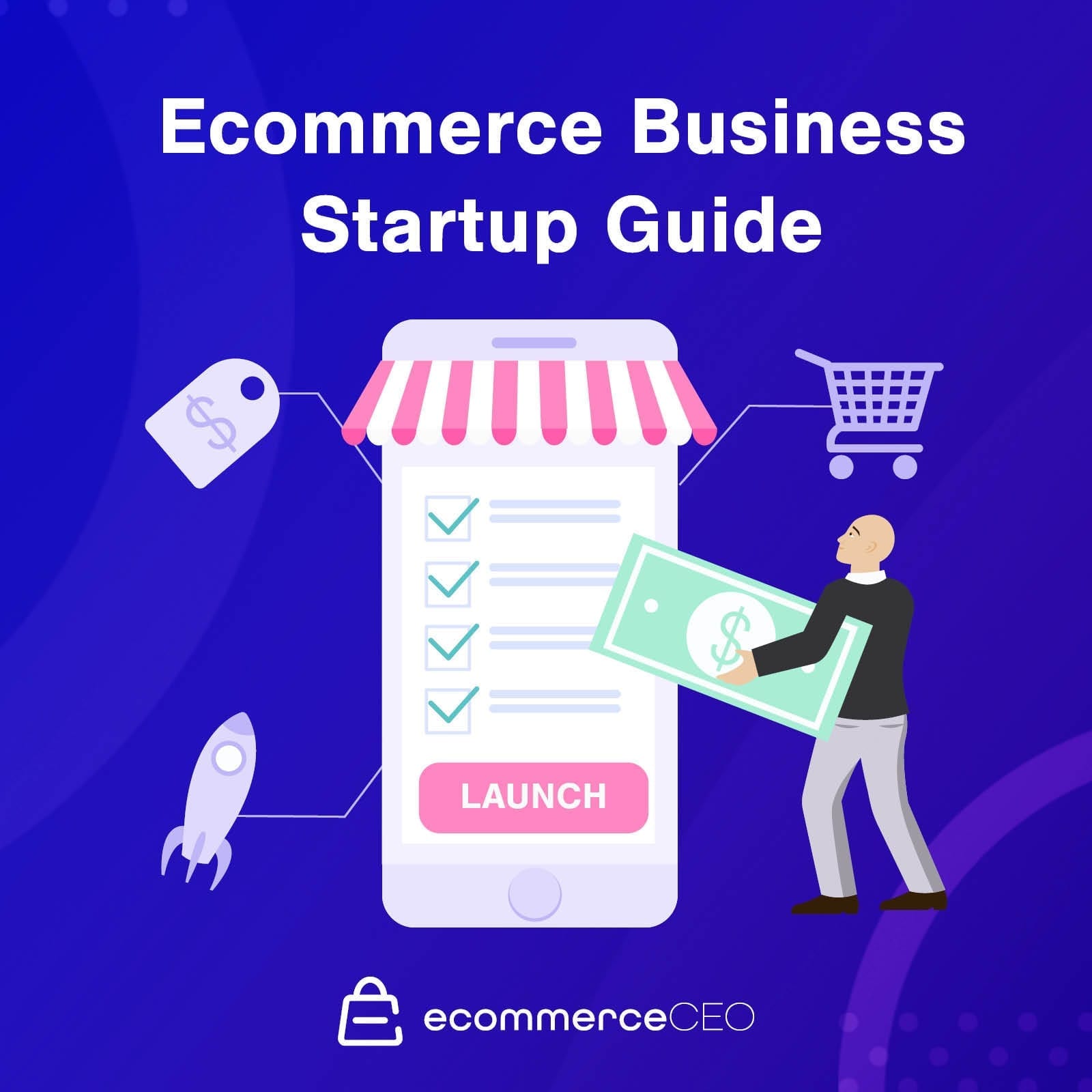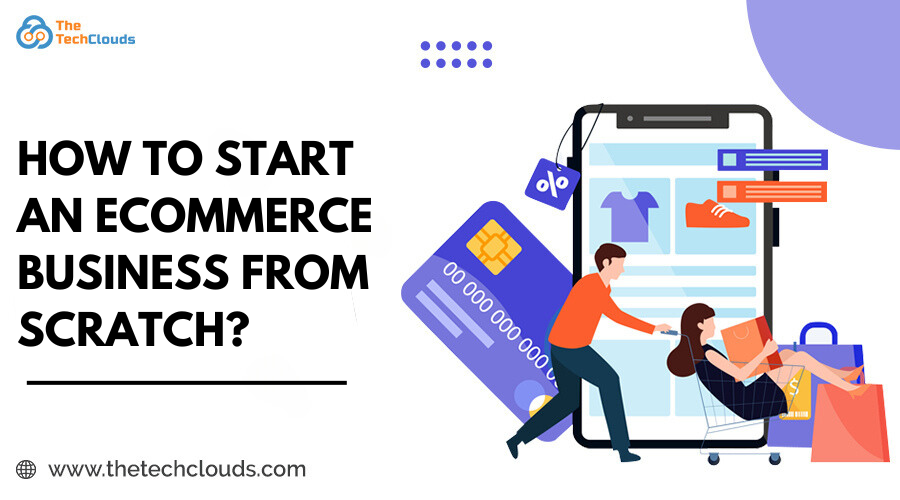How to Start a Successful eCommerce Business from Scratch: A Comprehensive Guide
Embarking on the journey of starting a successful eCommerce business from scratch opens up a world of opportunities and challenges. This guide delves into the essential steps and strategies required to establish a thriving online store, offering valuable insights and practical tips along the way.
Research and Planning
Starting an eCommerce business requires thorough research and strategic planning to increase the chances of success in a competitive market. Here are some key factors to consider:
Importance of Market Research
Market research is crucial before launching an eCommerce business as it helps in understanding the target audience, identifying market trends, and evaluating the demand for products or services. By conducting thorough market research, entrepreneurs can make informed decisions based on data rather than assumptions.
- Identifying target market segments and their preferences
- Evaluating market trends and demands
- Assessing potential competition and market saturation
- Analyzing pricing strategies and consumer behavior
Researching Competitors in the eCommerce Industry
Understanding the competitive landscape is essential for eCommerce startups to differentiate themselves and carve out a unique selling proposition. By researching competitors, entrepreneurs can identify strengths, weaknesses, and opportunities in the market to develop a competitive edge.
- Identifying direct and indirect competitors
- Assessing competitor product offerings and pricing strategies
- Analyzing competitor marketing tactics and customer engagement
- Monitoring competitor reviews and customer feedback
Creating a Detailed Business Plan
A comprehensive business plan is the blueprint for a successful eCommerce startup, outlining goals, strategies, and financial projections. It serves as a roadmap to guide decision-making, secure funding, and measure progress towards achieving business objectives.
- Defining business objectives and target market
- Outlining product sourcing, pricing, and distribution strategies
- Developing marketing and sales plans
- Estimating startup costs and projecting revenue streams
Selecting Products to Sell

Choosing the right products to sell online is crucial for the success of your eCommerce business. It involves considering factors like demand, competition, profit margins, and trends in the market.
Importance of Product Sourcing and Quality
When starting an eCommerce business, product sourcing plays a vital role in ensuring you offer high-quality items to your customers. Reliable suppliers and manufacturers can help maintain consistency and build trust with your target audience. Quality products lead to customer satisfaction, positive reviews, and repeat purchases.
Identifying Profitable Product Niches
To identify profitable product niches for your eCommerce store, conduct thorough market research. Look for products with high demand but low competition. Consider niche markets where you can cater to a specific audience's needs or preferences. Analyze trends, customer feedback, and buying patterns to make informed decisions about the products you want to sell online.
Building an Online Store
When it comes to setting up an eCommerce website, there are several platforms available for you to choose from. Each platform offers different features and functionalities to help you create a successful online store.
Different Platforms for Setting Up an eCommerce Website
- Shopify: A popular platform known for its ease of use and variety of customizable themes and apps.
- WooCommerce: A plugin for WordPress that allows you to turn your website into an online store.
- BigCommerce: Offers a wide range of built-in features designed to help you sell more.
- Magento: A more advanced platform suitable for larger eCommerce businesses with complex needs.
Essential Features and Design Elements for a Successful eCommerce Store
- Mobile Responsiveness: Ensure your website is optimized for mobile devices to cater to the growing number of mobile shoppers.
- Clear Navigation: Make it easy for customers to find products and navigate through your store.
- High-Quality Images: Use high-resolution images to showcase your products effectively.
- Secure Payment Gateway: Provide multiple payment options and ensure a secure checkout process.
- User-Friendly Interface: Create a seamless shopping experience with intuitive design and easy-to-use features.
Best Practices for Optimizing Product Pages and Improving User Experience
- Write Compelling Product Descriptions: Clearly describe your products, highlighting key features and benefits.
- Include Customer Reviews: Showcase customer feedback to build trust and credibility.
- Optimize for : Use relevant s to improve search engine visibility and attract more organic traffic.
- Implement Clear Call-to-Actions: Encourage users to take action with prominent buttons for adding to cart or checking out.
- Streamline Checkout Process: Make it easy for customers to complete their purchase with a simple and straightforward checkout process.
Marketing and Customer Acquisition

In the competitive world of eCommerce, effective marketing strategies are crucial for gaining visibility, driving traffic, and ultimately increasing sales. Digital marketing plays a key role in promoting an online business and acquiring customers. Let's explore some key strategies for successful marketing and customer acquisition in the eCommerce space.
Overview of Digital Marketing Strategies
Digital marketing encompasses a wide range of strategies and tactics to reach and engage with potential customers online. Here are some essential digital marketing strategies for promoting an eCommerce business:
- Search Engine Optimization (): is vital for improving your website's visibility on search engines like Google. By optimizing your website and content for relevant s, you can attract organic traffic and increase your chances of ranking higher in search results.
- Social Media Marketing: Social media platforms like Facebook, Instagram, and Twitter offer great opportunities to connect with your target audience, build brand awareness, and drive traffic to your online store. Create engaging content, run targeted ads, and interact with your followers to cultivate a loyal customer base.
- Email Marketing: Email marketing is a powerful tool for nurturing leads, promoting products, and driving repeat purchases. Build an email list of interested customers, send personalized campaigns, and offer exclusive deals to encourage conversions and build long-term relationships.
Importance of , Social Media, and Email Marketing
, social media, and email marketing are essential components of a successful eCommerce marketing strategy. Here's why each of these elements is crucial for driving traffic and sales:
- :Improves search engine visibility, attracts organic traffic, and boosts website credibility.
- Social Media:Builds brand awareness, engages with customers, drives traffic to your site, and fosters customer loyalty.
- Email Marketing:Nurtures leads, promotes products, drives conversions, and strengthens customer relationships.
Tips for Engaging Customers and Building Brand Loyalty
To effectively engage with customers and foster brand loyalty online, consider implementing the following tips:
- Personalize your interactions with customers by sending targeted messages and offers based on their preferences and purchase history.
- Encourage customer feedback and reviews to build trust, gather insights, and improve your products or services.
- Create a seamless and user-friendly shopping experience to make it easy for customers to browse, shop, and checkout on your website.
- Reward loyal customers with special discounts, exclusive offers, or loyalty programs to incentivize repeat purchases and increase customer retention.
Handling Logistics and Fulfillment

Managing logistics and fulfillment is crucial for the smooth operation of an eCommerce business. It involves overseeing inventory, shipping, and order fulfillment to ensure timely delivery and customer satisfaction.
In-house Fulfillment vs. Third-Party Logistics
When it comes to handling logistics and fulfillment, eCommerce businesses have the option to either manage these processes in-house or outsource them to third-party logistics providers. Here are the pros and cons of each approach:
- In-house Fulfillment:
- Pros:
- Greater control over the entire process from inventory management to shipping.
- Ability to customize packaging and branding to align with your business's unique identity.
- Potential cost savings for businesses with high order volumes.
- Cons:
- Requires significant investment in infrastructure, storage space, and manpower.
- Can be challenging to scale quickly to meet increasing demand.
- Increases the risk of errors in fulfillment and shipping.
- Third-Party Logistics:
- Pros:
- Access to specialized expertise and resources for efficient logistics management.
- Scalability to handle fluctuating order volumes without the need for additional investment.
- Potential cost savings for small to medium-sized businesses.
- Cons:
- Less control over the fulfillment process and customer experience.
- Dependency on external providers, which may lead to communication challenges or delays.
- Potential for higher fulfillment costs for businesses with lower order volumes.
Streamlining the Fulfillment Process
Efficient fulfillment is key to ensuring timely delivery and maintaining customer satisfaction. Here are some tips for streamlining the fulfillment process:
- Invest in inventory management software to track stock levels accurately and avoid stockouts.
- Optimize your packaging and shipping processes to reduce handling time and minimize shipping costs.
- Establish clear communication channels with your logistics partners or in-house fulfillment team to ensure seamless coordination.
- Implement quality control measures to minimize errors in order processing and shipping.
- Regularly review and optimize your fulfillment strategy based on customer feedback and performance metrics.
Customer Service and Retention
Effective customer service is crucial for the success of any eCommerce business. It is essential to provide exceptional service to build trust and maintain relationships with customers, encouraging repeat purchases. Handling returns, refunds, and inquiries promptly and effectively is key to ensuring customer satisfaction.
Strategies for Delivering Exceptional Customer Service
- Respond to customer inquiries promptly and courteously through various channels such as email, live chat, or phone.
- Personalize the shopping experience by addressing customers by name and offering personalized product recommendations based on their purchase history.
- Provide clear and detailed product information, shipping policies, and return procedures to set customer expectations.
- Offer multiple payment options to accommodate different customer preferences and ensure a smooth checkout process.
Building Trust and Relationships with Customers
- Send personalized thank-you notes or follow-up emails after purchases to show appreciation and encourage repeat business.
- Request feedback from customers to show that their opinions are valued and use this information to improve products or services.
- Implement a loyalty program or offer discounts to reward repeat customers and incentivize future purchases.
- Show transparency in pricing, shipping, and return policies to build trust and credibility with customers.
Tips for Handling Returns, Refunds, and Inquiries
- Have a clear and easy-to-understand return policy in place to streamline the process for customers and minimize confusion.
- Process returns and issue refunds promptly to show customers that their satisfaction is a top priority.
- Train customer service representatives to handle inquiries and complaints professionally and empathetically.
- Use customer feedback to identify common issues or pain points and proactively address them to improve the overall customer experience.
Final Conclusion
In conclusion, starting a successful eCommerce business from scratch demands dedication, strategic planning, and a customer-centric approach. By implementing the Artikeld strategies and staying committed to excellence, aspiring entrepreneurs can pave the way for a prosperous online venture.
Expert Answers
How important is market research before starting an eCommerce business?
Market research is crucial as it helps you understand your target audience, competition, and market trends, enabling you to make informed decisions for your business.
What are some strategies for choosing the right products to sell online?
Consider factors like demand, competition, profit margins, and your target market's preferences to select products with high potential for success.
Why is customer service important for an eCommerce business?
Exceptional customer service fosters trust, loyalty, and repeat purchases, playing a pivotal role in the success and growth of your online store.
How can I optimize product pages on my eCommerce website?
Optimize product pages by including high-quality images, detailed descriptions, customer reviews, and clear calls-to-action to enhance user experience and drive conversions.
What are the benefits of third-party logistics for eCommerce businesses?
Third-party logistics providers offer expertise, scalability, cost-efficiency, and faster order fulfillment, allowing eCommerce businesses to focus on core activities and expand their operations.

